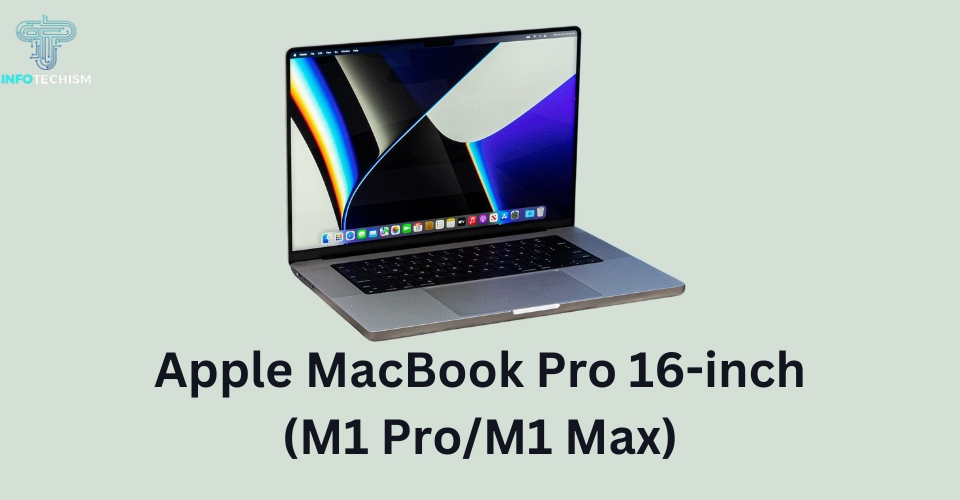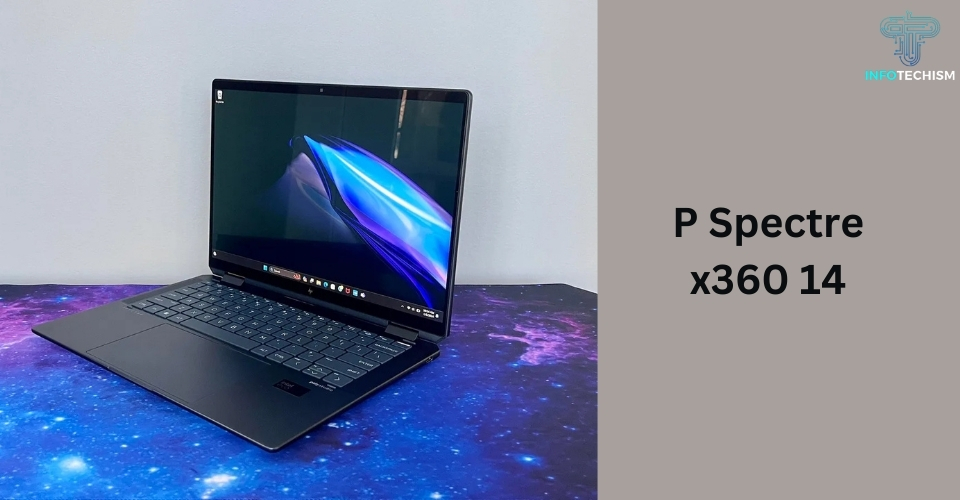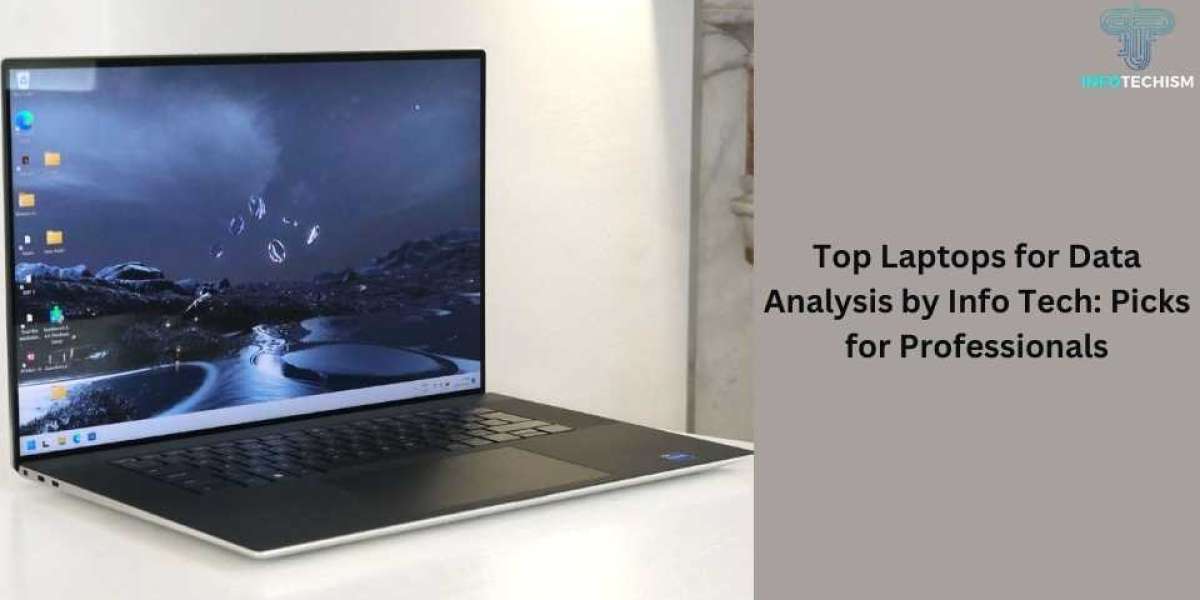Data analysis is at the heart of decision-making for businesses, researchers, and professionals across various fields. Whether you’re working with large datasets, running complex statistical models, or building machine learning algorithms, having the right laptop is crucial for optimizing performance and boosting productivity. With the growing demand for data-driven insights, it’s essential to have a machine that can handle the demands of data analysis software and intensive computations without compromising speed or efficiency.
In this guide, Info Tech presents the best laptops for data analysis, specifically chosen for their performance, durability, and user-friendly features. These laptops are perfect for professionals in fields like data science, finance, engineering, and business analytics. Let’s dive into the top picks that can help you excel in data analysis.
1. Apple MacBook Pro 16-inch (M1 Pro/M1 Max)

Apple’s MacBook Pro has long been a favorite among professionals, and the latest models powered by Apple’s M1 Pro and M1 Max chips take performance to a new level. The 16-inch MacBook Pro is perfect for data analysts who need to run multiple applications, handle large datasets, and perform heavy computations.
Key Features:
- M1 Pro or M1 Max chip: The M1 Pro and M1 Max chips offer blazing-fast performance, with up to 10 CPU cores and up to 32 GPU cores, making the MacBook Pro ideal for data analysis tasks, including machine learning and AI.
- 16-inch Liquid Retina XDR Display: The large, high-resolution screen is perfect for multitasking and visualizing complex data with precision.
- 32GB or 64GB Unified Memory: The generous RAM allocation ensures smooth multitasking and efficient processing of large datasets.
- Battery Life: Up to 21 hours of battery life, making it perfect for long working sessions.
For professionals who work with Big Data, machine learning models, or use Mac-only software like R, Python, or MATLAB, the MacBook Pro is a fantastic choice. It’s a bit on the pricier side but offers top-tier performance.
2. Dell XPS 15
The Dell XPS 15 is a powerhouse laptop that blends aesthetics with power, making it an excellent choice for data analysts. Its high-end specifications and sleek design make it ideal for professionals who need a reliable machine that performs under pressure.
Key Features:
- Intel Core i7 or i9 Processor: With up to the latest 11th Gen Intel Core i9 processors, the XPS 15 is fast enough to handle demanding data analysis tasks, such as running large simulations, compiling data, or executing complex algorithms.
- NVIDIA GeForce GTX 1650 Ti Graphics: The dedicated graphics card comes in handy for visualizing complex datasets and creating stunning visualizations or interactive dashboards.
- 15.6-inch 4K OLED Display: The high-resolution screen is perfect for those who work with detailed visualizations, charts, and graphs.
- Up to 64GB RAM: This allows for smooth multitasking when running memory-intensive programs, such as data visualization tools or machine learning frameworks.
- Up to 2TB SSD Storage: Ample storage for large datasets and fast read/write speeds to enhance productivity.
The Dell XPS 15 is an ideal choice for data analysts who need performance, portability, and excellent display quality. The addition of NVIDIA graphics makes it perfect for working with visual data analysis or software that requires GPU acceleration.
3. Microsoft Surface Laptop 4
For professionals who prefer a lightweight, portable, and highly functional device for data analysis, the Microsoft Surface Laptop 4 is an excellent choice. This ultra-portable laptop doesn’t compromise on power, offering solid performance for most data analysis tasks.
Key Features:
- 11th Gen Intel Core i5 or i7 Processor: With up to Intel Core i7, the Surface Laptop 4 provides fast processing speeds for handling data analysis tools like Excel, Power BI, or Python.
- 13.5-inch or 15-inch PixelSense Display: The high-quality screen, with vibrant colors and sharp resolution, is perfect for viewing datasets and visualizations.
- Up to 32GB RAM: The higher RAM configuration allows for smoother multitasking and efficient data handling.
- Up to 1TB SSD Storage: Fast storage for easy access to large datasets, models, and files.
- Long Battery Life: With up to 32 hours of battery life, the Surface Laptop 4 ensures you can work without worrying about frequent recharges.
Its lightweight, portable design makes the Surface Laptop 4 an excellent option for data professionals who are frequently on the move or work remotely. It’s a more affordable option than some high-end competitors while still offering good processing power.
4. Lenovo ThinkPad X1 Carbon (9th Gen)
For professionals who value reliability and durability, the Lenovo ThinkPad X1 Carbon (9th Gen) is one of the best laptops for data analysis. Known for its military-grade durability and robust performance, the ThinkPad X1 Carbon is trusted by many professionals in high-stakes environments, including finance, research, and engineering.
Key Features:
- Intel Core i7 or i9 Processor: The 11th Gen Intel processors provide ample power for complex data analysis applications and models.
- 14-inch UHD Display: The UHD display offers excellent clarity, ensuring that you can see every detail in your data visualizations.
- Up to 32GB RAM: Enough memory for even the most memory-hungry software and large datasets.
- Up to 1TB SSD Storage: Fast data access with an SSD, which is perfect for keeping datasets and applications running smoothly.
- Lightweight Durable: Weighing only 2.5 pounds, the ThinkPad X1 Carbon is easy to carry while providing a premium build quality.
The ThinkPad X1 Carbon is a great choice for professionals who need a reliable and durable laptop that can withstand the demands of data analysis, while still offering portability and impressive performance.
5. HP Spectre x360 14

For those looking for a convertible laptop with a stylish design and solid performance, the HP Spectre x360 14 is an excellent choice. Its 2-in-1 design lets you easily switch between laptop and tablet modes, making it a versatile tool for data analysis and presentations.
Key Features:
- Intel Core i7 Processor: The powerful 11th Gen Intel Core i7 ensures that the Spectre x360 handles data analysis tasks with ease.
- 13.5-inch OLED Display: With a high-definition OLED display, this laptop is perfect for viewing data visualizations and presentations with exceptional clarity and color accuracy.
- 16GB RAM: More than enough memory for everyday data analysis tasks, including working with databases, running scripts, and creating visual reports.
- Up to 1TB SSD: Provides sufficient storage for your data files, models, and applications while offering fast access speeds.
The HP Spectre x360 14 is perfect for data analysts who want a convertible laptop that doubles as a presentation tool. Its stunning display, solid performance, and stylish design make it an appealing option for those who need a mix of power and aesthetics.
Conclusion
Choosing the right laptop for data analysis depends on your specific needs, including performance, portability, screen quality, and price. Whether you’re running complex statistical models, creating interactive dashboards, or analyzing massive datasets, the laptops listed above are designed to handle the most demanding data analysis tasks.
If you’re a professional data analyst looking for powerful performance and exceptional build quality, the MacBook Pro, Dell XPS 15, and ThinkPad X1 Carbon are top choices. For those who prioritize portability and long battery life, the Microsoft Surface Laptop 4 and HP Spectre x360 14 are also excellent options.
Regardless of your choice, investing in a high-performance laptop will enable you to work efficiently, enhance your productivity, and tackle even the most complex data challenges with ease.







